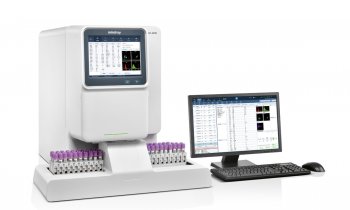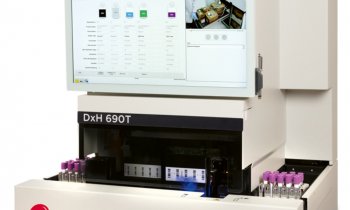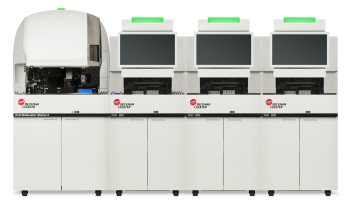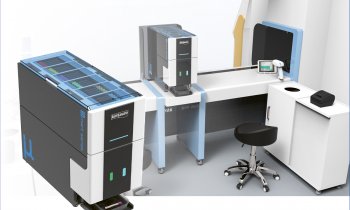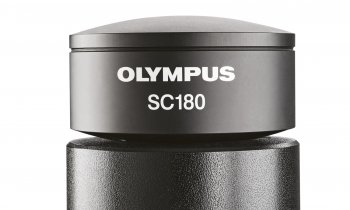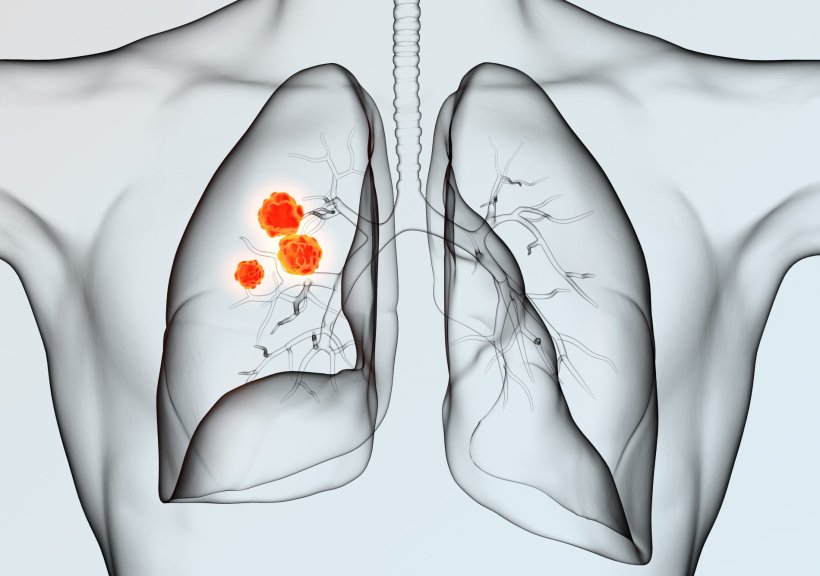
Image source: Adobe Stock/Axel Kock
News • Biomarker from blood test
Lung cancer: Liquid biopsy accurately predicts immunotherapy response
Mount Sinai researchers have validated for the first time that a simple blood test called a liquid biopsy could be a better predictor of whether cancer immunotherapy will be successful for a patient with lung cancer than an invasive tumor biopsy procedure.
Their study was published in the Journal of Experimental & Clinical Cancer Research.
The liquid biopsy tests for a biomarker of PD-L1, a protein and target for a type of immunotherapy called checkpoint inhibitors, which helps the patient’s immune system attack and kill cancer cells. This study showed that testing the blood of lung cancer patients for the PD-L1 biomarker gave more accurate predictions of the response and survival for patients with lung cancer than testing for PD-L1 in tissue from lung cancer biopsies, the current standard of care.

Image source: Mount Sinai Health System
The biomarker in blood, named EV PD-L1, comes from extracellular vesicles, which are particles shed from tumor cells. A decrease of PD-L1 in extracellular vesicles in blood could therefore become a useful test to predict which patients with non-small-cell lung cancer could benefit from immunotherapy. “These results will have an impact in the search for biomarkers to predict for immunotherapy outcome in patients with lung cancer as no truly reliable biomarkers have been found yet,” said senior author Christian Rolfo, MD, PhD, MBA, Professor of Medicine (Hematology and Medical Oncology) at the Icahn School of Medicine at Mount Sinai, Associate Director for Clinical Research in the Center for Thoracic Oncology at The Tisch Cancer Institute, and President of the International Society of Liquid Biopsy. “If validated in larger prospective cohorts of patients, as we are working on now, this protein could complement or substitute for the tissue PD-L1 as the standard of care in these and other types of tumor patients receiving immunotherapy, especially because it is minimally invasive and can be repetitive during treatment, being able to detect changes in the tumor during the treatment in real time.”
Researchers collected blood samples from two cohorts of 33 and 24 patients with non-small-cell lung cancer receiving immune-checkpoint inhibitors before and at the ninth week of treatment. They also included a group of 15 patients receiving chemotherapy as controls. Extracellular vesicles were isolated from blood samples and the protein expression of PD-L1 was measured in each group at both time points. Researchers also measured imaging scans of patients’ tumors before treatment and evaluated them with an innovative imaging technology called radiomics to create a full model for prediction of immunotherapy response.
Source: Mount Sinai Health System
04.06.2022






